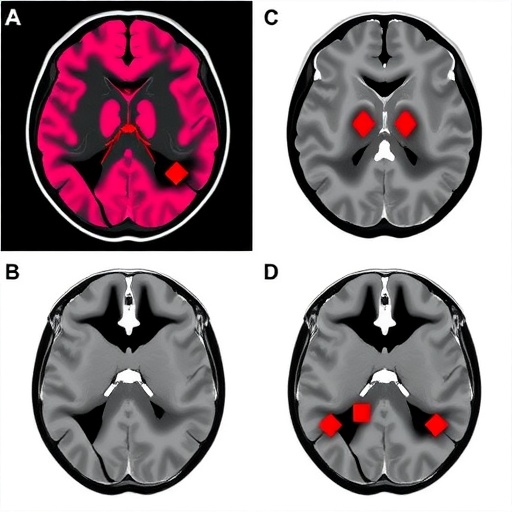PROTECT YOUR DNA WITH QUANTUM TECHNOLOGY
Orgo-Life the new way to the future Advertising by AdpathwayIn a groundbreaking study, researchers have made significant strides in understanding the intricate association between serum testosterone levels and cardiovascular health in transgender individuals who are undergoing gender-affirming testosterone therapy. This cross-sectional study, from a team consisting of Pattar, B.S.B., Harrison, T.G., Saad, N., and others, shines a light on a topic that remains underexplored despite its critical importance.
Transgender individuals face numerous challenges in their pursuit of health, not least of which involves addressing cardiovascular risks. The study published in Biological Sex Differences articulates how crucial it is to assess these health measures as more individuals transition through hormone therapy. As awareness and acceptance of transgender lives grow, academic inquiries into the specific health implications of hormone treatments are becoming increasingly essential.
The methodology of the study is robust. Researchers gathered a diverse cohort of transgender individuals currently participating in gender-affirming testosterone therapy. This rich data pool allowed for an in-depth analysis of various health metrics, including blood pressure, cholesterol levels, and other marker indicators of cardiovascular well-being. The use of this cross-sectional design allowed the team to make insightful observations about the health of participants at a singular point in time, creating a clear picture of testosterone’s role.
Serum testosterone, particularly, was the focal point of this investigation. Researchers explored not only the average testosterone levels of the participants but also how fluctuations in these levels correlated with cardiovascular health outcomes. The findings revealed a complex relationship, where optimal testosterone levels appeared to be linked with healthier cardiovascular profiles, while levels either too high or too low were associated with increased health risks, provoking vital conversations about the guidelines surrounding testosterone replacement therapy.
A noteworthy revelation from Pattar and colleagues is the considerable variance in testosterone levels among participants. The study underscores the importance of individualized healthcare approaches, suggesting that providers should tailor hormone prescriptions based on individual responses rather than adhering to a one-size-fits-all model. The consequences of this guidance are profound, indicating that healthcare providers must engage in comprehensive evaluations of hormone therapy effects on a case-by-case basis.
In contrast to previous studies that delivered generic conclusions, this comprehensive analysis argues for the necessity of personalized healthcare within the transgender community. One participant divulged a previously unrecognized fatigue that correlated directly with elevated testosterone levels, illustrating the multifaceted nature of hormone therapy. These anecdotal pieces, while subjective, provide critical qualitative support for the quantitative data gathered by the research team.
Moreover, the study does not shy away from discussing the potential for future longitudinal research. While cross-sectional studies are instrumental in establishing immediate associations, they inherently come with limitations. Longitudinal inquiries could track changes over time, providing a more dynamic understanding of how testosterone therapy influences cardiovascular health as individuals transition and age. The opportunity for deeper exploration into this vital subject is indeed expansive.
The impact of these findings does not remain confined to academia. They resonate profoundly within clinical practices and health policy discussions. As healthcare providers look to improve transgender care, the study illuminates the need for updated clinical guidelines that encompass the latest empirical evidence. Cardiovascular health should be a primary focus in treatment protocols for transgender individuals receiving testosterone therapy.
Furthermore, Pattar et al. also call attention to the societal implications of their findings. As discussions around transgender healthcare gain traction in public domains, the research provides a scientific foundation for advocacy efforts advocating for quality healthcare access. Transformations in societal perceptions of gender identity can lead to better health outcomes, further encouraging researchers and clinicians to broaden their focus on effective treatments.
This study unfolds within a larger tapestry of health research, emphasizing the role that sex and gender can play in healthcare discrepancies. The findings support ongoing discussions regarding disparities in health service provision, particularly for marginalized populations. Through this, Pattar and colleagues’ work further elevates the importance of intersectionality in medical research.
In conclusion, this significant study not only contributes to the conversation on testosterone therapy but also shapes future research trajectories and clinical practices. Researchers and healthcare professionals are urged to consider the delicate balance between testosterone levels and overall cardiovascular health. Moving forward, it is paramount for inclusive healthcare practices to evolve, aligning with new evidence that portrays the transformative potentials and challenges inherent in transgender healthcare.
As this field continues to advance, it ultimately enriches our understanding of health diversity and the nuances associated with hormonal treatments. The continuing exploration of these relationships paves the way for improved health and well-being among transgender individuals. The future beckons researchers and providers alike to couple compassion with evidence-based practices in their pursuit of optimal health outcomes.
Subject of Research: Association between serum testosterone and cardiovascular health among transgender individuals using gender-affirming testosterone therapy.
Article Title: Association between serum testosterone and measures of cardiovascular health among transgender individuals using gender-affirming testosterone therapy: a cross-sectional study.
Article References:
Pattar, B.S.B., Harrison, T.G., Saad, N. et al. Association between serum testosterone and measures of cardiovascular health among transgender individuals using gender-affirming testosterone therapy: a cross-sectional study. Biol Sex Differ 16, 44 (2025). https://doi.org/10.1186/s13293-025-00726-3
Image Credits: AI Generated
DOI: 10.1186/s13293-025-00726-3
Keywords: Testosterone therapy, cardiovascular health, transgender individuals, health disparities, personalized healthcare.
Tags: academic studies on transgender healthbiological sex differences in cardiovascular studiescardiovascular risks in transgender peoplegender-affirming testosterone therapyhealth assessments for transgender individualshormonal effects on cardiovascular well-beingimpact of testosterone on blood pressure and cholesterolimportance of hormone therapy in gender transitionresearch on transgender health disparitiesserum testosterone levels and health metricstestosterone therapy and cardiovascular healthtransgender individuals and hormone therapy


 4 hours ago
9
4 hours ago
9





















 English (US) ·
English (US) ·  French (CA) ·
French (CA) ·